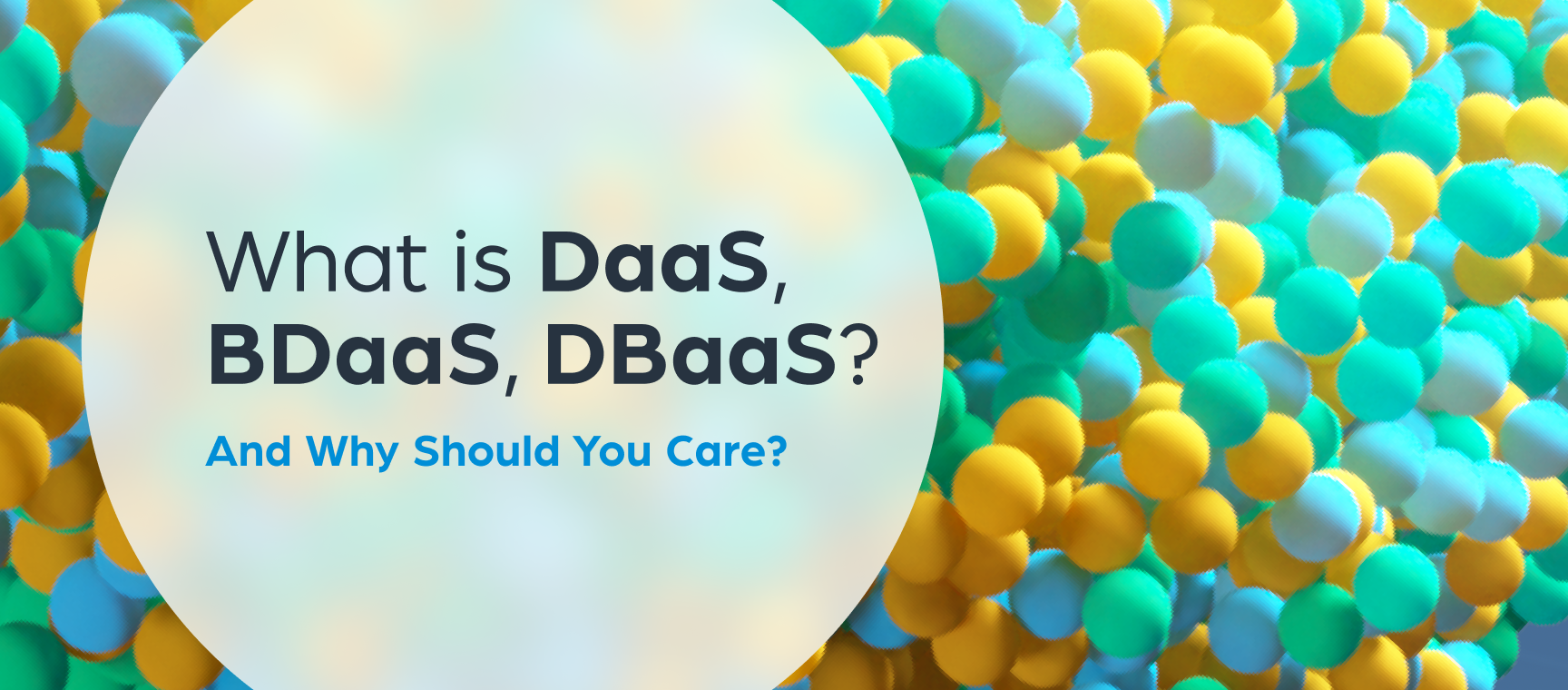The proliferation of data services has created a wide range of confusing buzzwords and acronyms – but at its core, DaaS is still a meaningful concept.
We are living in the age of everything as a service (EaaS?). What started as the simple and fairly easy to understand the concept of software as a service has, in recent years, exploded into a seemingly endless barrage of *aaS acronyms, covering pretty much every imaginable aspect of IT software or hardware – e.g. PaaS, DraaS, FaaS (platform, data recovery, and framework respectively) and many others, some of which you can find in the wonderfully titled Big -aaS List of As-a-Service Offerings.
It probably won’t be very long before some vendor comes out with the unique and revolutionary concept of Service as a Service.
Whether this proliferation of stuff-you-can-do-as-a-service is due to –
-
- Advancements in cloud computing and telecommunications that have made these business models more viable,
- savvy marketers discovering that everything sounds better with two lowercase a’s in the middle, or
- some combination of the two
is up for debate. However, as a company who’s offering could be described as web data as a service, we thought we might do our share of clearing up some of the confusion around the more commonly discussed and acronymed data services you might run into – specifically data as a service (DaaS), big data as a service (BDaaS), and database as a service (DBaaS).
What do these terms mean? Do they mean anything at all? Should you care? Hopefully, we’ll have answered most of these frequently and infrequently asked questions by the end of this post. It’s a thankless job, but somebody’s gotta do it!
What is DaaS?
Data as a service is a business model wherein vendors (again, such as ourselves) supply data to other organizations, on-demand and regardless of the client’s physical location or infrastructure. In a DaaS model the vendor collects the data from its own sources and provides access to end customers who are thus saved the trouble of having to build the necessary technology or means to capture this data themselves. Often the vendor might take some additional steps to structure, clean or organize the data before it is provided to the next party.
Examples of use cases for data as a service:
-
-
- Unstructured web content which is crawled, structured and filtered on-demand by Webz.io and a handful of other companies. Learn more about the crawled web build vs buy dilemma </plug>
- IBM offers weather data as a service
- IOT sensor data, which will be the next big thing in DaaS according to Gartner
-
Wait, isn’t there another DaaS?
Yes, there’s Desktop as a Service, but this is confusing enough already —
But wait, isn’t there yet ANOTHER DaaS?
Okay, there’s also Device as a Service, but we swear that’s all of ‘em!
Except for the epic 1981 German film
So yeah, there’s definitely a lot to be confused about when you see the DaaS acronym, but within the realm of data jargon – you’d generally be referring to the above definition.
Is Cloud Business Intelligence Considered DaaS?
No – or at least, it shouldn’t be. Software that lets you analyze your own data in the cloud might be labeled “data as a service”, but we feel this is a mistake. BI in the cloud is much more of a subset of other SaaS and very much distinct from the definition of DaaS we described above. Honestly, the big data landscape has enough buzzwords for everyone, so let’s at least try to keep their individual meanings intact.
What is BDaaS?
BDaaS stands for Big Data as a Service. While you might be forgiven for thinking that this is exactly the same as DaaS, except bigger, it actually means something completely different and refers to the delivery of tools and technologies to analyze massive datasets, provided in a service model. These could include statistical software packages, distributed storage systems and data science expertise. It’s not the actual data that’s being provided, but rather the insights.
So shouldn’t it be called “insights as a service”?
Don’t worry, someone already thought of that.
What is DBaaS?
Database as a service refers to an external vendor providing the database layer for application developers, in a private or public cloud. The database resources are then used on-demand and without the app developers having to gain the necessary skills and expertise to manage complex database environments themselves. You can read all about database as a service here. Again, despite the similar letter arrangement and the word “data”, it has very little to do with the DaaS we’re talking about.
Does any of this even matter?
Life in general? We’re not sure. But specifically, when it comes to understanding the big data landscape, DaaS is actually a pretty useful term – if used correctly (and a meaningless buzzword if used incorrectly). It describes a unique phenomenon and service model for working with data, and for using external datasets or data feeds within your business or application.
By understanding the difference between data as a service versus a data acquisition or data analysis platform, you can make more informed decisions as to whether various offerings are relevant for your business.



